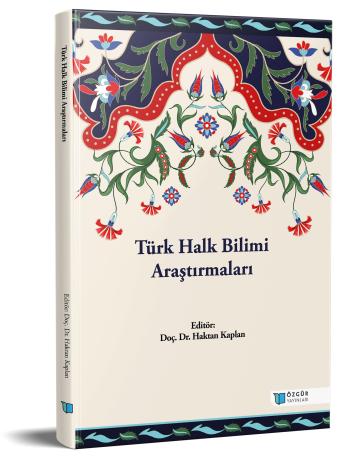
Amasya’da Sözlü Halk Kültürünün Bir Parçası Olarak Dua ve Beddua Pratikleri
Şu kitabın bölümü:
Kaplan,
H.
(ed.)
2025.
Türk Halk Bilimi Araştırmaları.
Özet
Millet olmanın en önemli gereklerinden biri de nesiller boyunca aktarılacak olan bir birikime sahip olmaktır. Yüzyıllar içerisinde milletler birtakım ortak değerler meydana getirir, üretir ve bu birikimler dinamik bir yapı ve süreklilik arz eder. Bunlardan biri de şüphesiz sözlü kültür ürünleridir. Tarihî süreç içerisinde toplumun en önemli yapı taşlarından biri olarak kalıplaşan bu sözler pek çok durum karşısında bireyin duygu ve düşüncelerini ifade etmeye yarar. Bunlardan biri de alkış (dua) ve kargış (beddua)lardır. İnsanoğlunun karşılaştığı olaylar ve durumlar karşısında duygu ve düşüncelerini başkalarına iletme ihtiyacının karşılığı olarak dile getirilen dualar ve beddualar aslında duygusal tepkiler olarak düşünülebilir. İyiliğin, güzelliğin ve doğru olan her türlü durumun övgü dolu sözleri içinde barındıran dualarla ifade edildiği; kötülüğün, yanlışın ve çirkin olan her türlü durumun karşısında bir anlamda insanın haykırışı, nefreti olarak karşılık bulduğu beddualar sözlü kültürde önemli bir yer tutar ve pek çok farklı işlevlerde kullanılır. Türk edebiyatında en nadide örneklerini Dede Korkut Hikâyeleri’nde gördüğümüz “alkışlar (dualar)” ve “kargışlar (beddualar) Türk sözlü edebiyatının en yaygın örneklerini meydana getirmektedir. En az ele alınıp incelenmesine rağmen dualar ve beddualar iyilik, iyi olma hâli, güzel temenniler ile birlikte kötülük, kötü olma, kötülüğü isteme ve öfkeyi ifade etmesi bakımından sözlü kültürün en yaygın biçimlerini oluşturmaktadır. İyi dileği, iyiyi ve güzeli yansıtan dualar beddualara nazaran daha dikkat çekici olmuştur. Dua ve beddua geleneğimize kültür katkısıyla özellikle dua konusunda İslamiyet’in çok güçlü ve önemli bir etkisinin olduğu görülmektedir. Duygu ve düşüncelerin ifadesini kolaylaştıran bu sözler sözlü kültürümüzün ayrılmaz bir parçası hâline gelmiştir. Bu çalışmada Amasya duaları, bedduaları anlam ve işlevsellik bakımından incelenmiştir.

